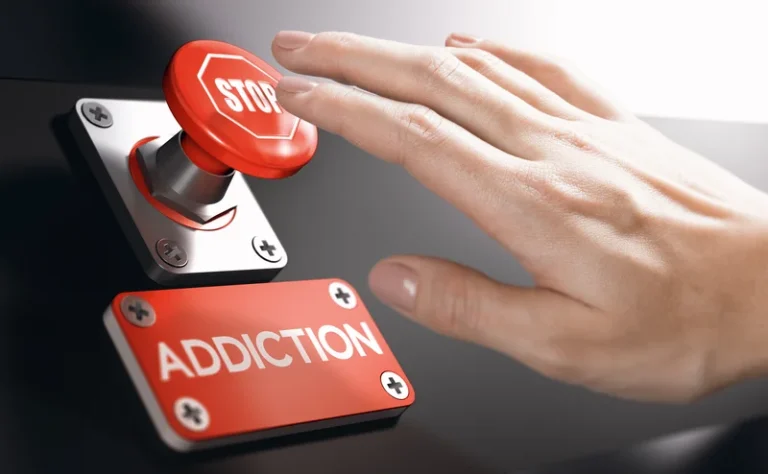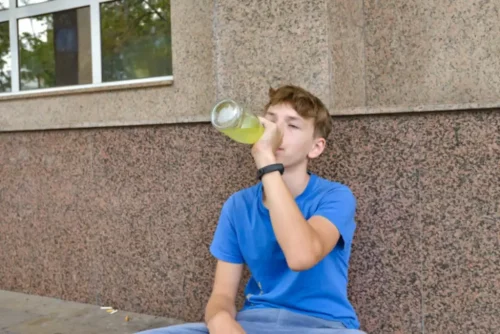
There are potential short- and long-term negative health effects related to ketamine use. These depend on how much ketamine someone takes, whether it is taken with other drugs, and how often or how long ketamine is used. I don’t know the degree to which esketamine is currently under serious clinical investigation for some of these other psychiatric indications. It would stand to reason that the manufacturer would have an enormous incentive to identify and get FDA approval for other indications.
Top doctors in ,
- The EML describes medications considered to be effective and safe while meeting the most important needs in a health system.Ketamine is also classified as a dissociative anesthetic.
- It is fortunate that quantitative information on the pharmacological action of ketamine on NMDARs is available, and that previous studies also permit a reasonable estimate of ketamine concentration in brain during human administration.
- The initial IV dose of Ketalar ranges from 1 milligram (mg) per kilogram (kg) of body weight to 4.5 mg per kg of body weight.
- Ketamine for depression is an off-label use, and its use for depression is currently being researched in clinical trials.
- Ketamine treatments result in neurogenesis and neuroplasticity in our brains for about 72 hours.
- Other forms of ketamine – none of which have FDA approval for mental health conditions – include IV infusion or a shot in the arm, or oral compounded formulations.
“As the medicine takes effect, you can have a feeling of being outside of your body or being connected with things beyond your limited sense of self,” says Robison. These can be positive feelings of peace and joy for many with mental health disorders. In 2019, the Food and Drug Administration (FDA) approved the use of an esketamine nasal spray called Spravato for treatment-resistant depression.
Before taking ketamine, tell your doctor:

Both alcohol and ketamine are central nervous system depressants, so the combined effects are dangerous. For treatment-resistant depression, patients usually get the esketamine nasal spray twice a week for one to four weeks. Then they take it once a week for weeks five to nine, and then once every week or two after that. Scientists continue to investigate how effective ketamine ketamine addiction is for several conditions, including anxiety disorders. However, the scientists noted their study used historical data rather than firsthand observations. It also used data from a group of people that may not accurately reflect real-world effects.
What should I avoid after receiving ketamine?

The researchers concluded that in patients with MDD, two to three weeks of ketamine treatments helped sustain the benefit of the initial dose, and people experienced reduced depression severity significantly compared with a placebo. Moving forward, other drugs could join ketamine in the realm of legal psychedelic medicine, as the FDA released draft guidance in June 2023 for clinical researchers in the field. It pertains to the use of psychedelic drugs as a potential treatment for psychiatric or substance use disorders. One pain point is the need for more standardized clinical studies on these substances, and the guidance advises on study design through drug development of psychedelic medicines. (This is currently in draft form, and the public has a chance to comment before the final version is released.) In other words, the field of psychedelic therapy — both in research and legislation — is rapidly evolving. Aside from its medical use as an anesthetic, ketamine is prescribed by some healthcare providers as an alternative treatment for severe depression.
Ketamine
At certain doses, ketamine can result in a mystical or spiritual experience. One may experience oneness with the universe, or feel they are a part of something greater. Others may experience increased feelings of love and compassion towards oneself and others. Some patients report feelings of well-being and coming to terms with existential anxiety. There is some debate whether this kind of experience may augment or be correlated to an antidepressant response.
Who Should Avoid Ketamine Therapy

Understanding ketamine’s properties and applications arms individuals and healthcare providers with knowledge of this powerful tool, paving the way for more informed decisions in mental health and pain management treatments. For people with the certain mental health concerns mentioned above, ketamine therapy is generally considered safe and effective when practiced under the care of a licensed therapist or doctor. Emerging research suggests that ketamine can be used to treat alcohol, cocaine, or opioid use disorder, per a systematic review published in Frontiers in Psychiatry in 2018. Ketamine treatment has been found to improve cravings, enhance one’s motivation to quit, and lessen withdrawal symptoms, according to researchers. Right now, however, more research is needed to look at larger sample sizes and demographics of people, more controlled studies, and lengthier follow-up to assess the long-term effects of ketamine on substance use issues. Along with new neural connections, the drug’s dissociative properties may lay the foundation for a perspective shift among people who use it.
Abuse and misuse of the medication are part of the “black box” warning on esketamine. “I think it’s probably less addictive than opioids, but it’s not without its risks,” says Schatzberg, who is the director of Stanford University’s Mood Disorders Center. If you develop the ketamine abuse pattern, there are all kinds of medical consequences. This booklet covers the facts on illegal drugs, alcohol, tobacco, making choices and how to help someone who has taken a drug. Needle and Syringe Programs provide clean needles or syringes to people who inject drugs. People who use ketamine regularly can become tolerant — they need more of the drug to achieve the same effects.
Hundreds of studies are taking place around the globe to unlock the mental health applications for ketamine

Although NMDARs are the most obvious candidates to trigger antidepressant effects, recent data cast some doubt on the NMDAR hypothesis. Several NMDAR channel-blocking =https://ecosoberhouse.com/ drugs, including phencyclidine and MK-801, reproduce the psychotomimetic effects of ketamine in humans and animals (Wiescholleck and Manahan-Vaughan, 2013). Furthermore, the acute psychotomimetic effects more closely parallel ketamine’s pharmacokinetics and dissipate with ketamine clearance and metabolism. In contrast, a recent report by Zanos et al. (2016) raises important questions about whether NMDAR blockade is critical for the slower-onset and longer-lived antidepressant-like actions. Intriguingly, HNK, particularly 2R,6R-HNK, may also lack the psychosis-inducing properties of ketamine.
- Ketamine also causes individuals to have no memory of events that happen while they are under its influence.
- In particular, hyperpolarization-activated cyclic nucleotide gated cationic (HCN) channels that express the HCN1 subunit have been found to be a potential target underlying ketamine’s effects on neural networks and certain clinical-like actions.
- Following a predetermined series of sessions, you’ll then talk about what you may need in the future.
- They discuss it with their doctor if symptoms of depression start to reappear.
Within 6 weeks of starting treatment, 20% of people with depression were considered “in remission,” meaning their depression symptoms had greatly improved, and 50% of people who had thoughts of suicide no longer experienced them. Ketamine, an FDA approved anesthetic agent, is being used off-label to treat a variety of mental health issues. While there is the most research for treatment refractory depression (including bipolar depression), suicidal ideation, PTSD, and addiction, there is also research suggesting beneficial effects for OCD, anxiety, eating disorders, and end-of-life care. In clinical use ketamine is administered intramuscularly or intravenously. Minor side effects of the drug include tearing (lacrimation) when emerging from the dissociative anesthetic state. Patients can sometimes experience severe and troubling hallucinogenic effects, such as intense dreams and delirium, upon waking; these effects are more common in adults than in children.
Beyond the Bottom Line: Evaluating Charity Care, Community Benefits, and Tax Exemptions in Nonprofit Hospitals
He was the fellowship director at the Center for East-West Medicine and led courses for physician fellows, residents, and medical students. Justin Laube, MD, is a board-certified integrative and internal medicine physician, a teacher, and a consultant with extensive expertise in integrative health, medical education, and trauma healing. (Insurance may cover the cost of the psychotherapy sessions, however. Ask about your specific benefits.) “The cost of treatment is not an insignificant amount of marijuana addiction money,” says De La Hoz. One issue is that because of the cost, it may only be available to those with higher incomes.
